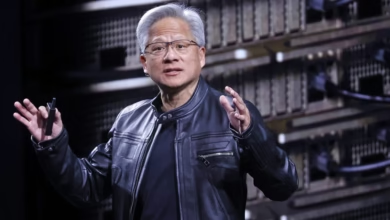Intel Shuts Down Automotive Chip Manufacturing Division

▼ Summary
– Intel is shutting down its automotive processor business and laying off most employees in the division to focus on its core client and data center portfolio.
– The company’s automotive division produced chips for car infotainment systems, instrument clusters, and controls, with its tech used in over 50 million vehicles.
– Intel had recently expanded its automotive efforts, introducing AI-enhanced chips for navigation and voice assistants and planning to integrate its Arc GPU into cars.
– Intel acquired self-driving tech company Mobileye for $15 billion in 2017, which later went public, though Intel retains a majority stake.
– Intel’s CEO announced workforce reductions in Q2 2025, with layoffs also affecting its foundry business and 107 employees at its Santa Clara headquarters.
Intel has announced the shutdown of its automotive chip manufacturing division, marking a strategic shift away from vehicle processors to concentrate on its core computing and data center businesses. According to an internal memo obtained by The Oregonian, the company plans to lay off a significant portion of the team dedicated to automotive solutions, though exact numbers remain undisclosed.
The decision comes as Intel refocuses on strengthening its position in client computing and data center technologies, sectors where it faces intense competition. While the company assured customers of a seamless transition, it declined to provide further details when approached for comment.
Intel’s automotive division had been a growing segment, supplying chips for infotainment systems, digital dashboards, and vehicle controls found in over 50 million cars worldwide. Just last year, the company unveiled advanced AI-powered automotive chips designed to enhance navigation and voice recognition capabilities, alongside plans to integrate its Arc GPU technology into future vehicles.
The move follows Intel’s 2017 acquisition of Mobileye, a leader in autonomous driving technology, for $15 billion. Though Mobileye operates independently as a publicly traded company, Intel retains majority ownership. Despite these investments, the chipmaker appears to be streamlining operations under CEO Lip-Bu Tan, who hinted at workforce reductions earlier this year as part of broader restructuring efforts.
Additional layoffs are expected in Intel’s foundry operations, with a recent California WARN notice indicating 107 job cuts at its Santa Clara headquarters. The company’s pivot underscores the challenges of balancing innovation with profitability in an increasingly competitive semiconductor market.
(Source: The Verge)


